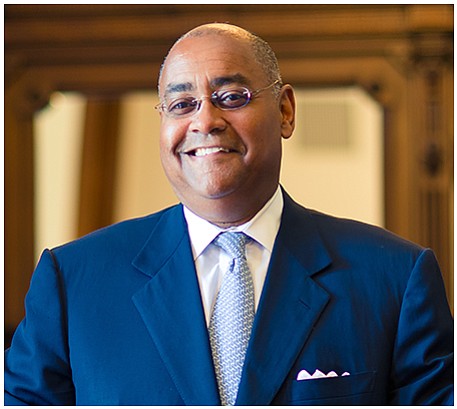Harris County Commissioner Court Approves Commissioner Rodney Ellis’ Eight Criminal Justice Reform Measures
Style Magazine Newswire | 6/10/2020, 4:46 p.m.
In response to the killings of George Floyd, Breonna Taylor, and far too many others, Harris County Commissioners Court on Tuesday approved eight measures Commissioner Rodney Ellis proposed to reform the oppressive criminal justice system that leads to mass incarceration and police brutality against people of color and the poor.
The agenda items include studies that could lead to reallocating of the county’s criminal justice budget, implementing an independent oversight board to investigate excessive police force and expanding the Public Defender Office – all to end mass incarceration of communities of color as well as stop the criminalization of poverty, mental illness and substance abuse.
“Reforming law enforcement practices and holding police accountable for these killings are important,” Commissioner Ellis said. “But the killings of George Floyd, Breonna Taylor, and other victims are not simply due to rogue police violence. The destruction of these lives is a symptom of the much larger and widespread disease of systematic over criminalization, mass incarceration, racism, and oppression in our American system that needlessly and continuously destroys countless Black and Brown lives.”
The United States has the highest incarceration rate in the world. Texas has the 6th highest incarceration rate in the nation. There are twice as many people at the Harris County Jail as at the jails in New York or Cook County. However, research shows there is no link between higher incarceration and a reduction in violent crime.
Measures approved last night, which may call for budget reallocations, include effective alternatives to using the criminal justice system to address public health challenges, creating a county emergency responder program to allow professionals to better handle certain situations instead of the police, and creating a county agency to administer violence interruption programs.
Additionally, Commissioners Court approved a study for the creation of an independent oversight body that shapes and publicizes policies, and has the power to subpoena documents and witnesses. It will provide greater transparency after incidents of force and improve use-of-force policies and data-keeping to address excessive police violence. Such a body is needed to improve accountability and transparency in use-of-force incidents by law enforcement.
“An independent board with subpoena power provides the public with assurances that the decisions being made are just. The county will study whether we can establish an independent board that can investigate, has teeth, independent funds and can make recommendations that have weight,” Commissioner Ellis said.
Harris County devotes more than $776 million, 45%, of its general fund departmental budget to law enforcement. That amount is more than ten times the county’s general fund spending for public health and the Harris Center for Mental Health and IDD.
“We are calling for a comprehensive examination of our budget priorities, and what we can do to most effectively use the people’s resources to uplift our communities and make them safer while eliminating and divesting from structures that criminalize people based on their class, race or health,” Commissioner Ellis said. “By redistributing funds toward community resources, we can begin to build a better quality of life for communities of color and find better solutions than a punitive criminal justice system.”
Other approved items seek to give Harris County a clear picture of the racial and ethnic disparities around incarceration, fees, and fines and the root cause for these inequities within our criminal justice system. Harris County sends our Black residents to prison at a rate five times our white residents. A Black Texan is 16 times as likely to go to prison for cocaine possession, even though use is the same across racial and ethnic groups.
“Putting people in jail doesn’t make us safer,” Commissioner said. “Research shows there is no link between higher incarceration and reduction in violent crime. When Texas reduced its incarceration rate, the crime rate also went down. When we lock people up, we hurt people of color the most. Black people make up 12% of our state population but 33% of our prison inmates.”








